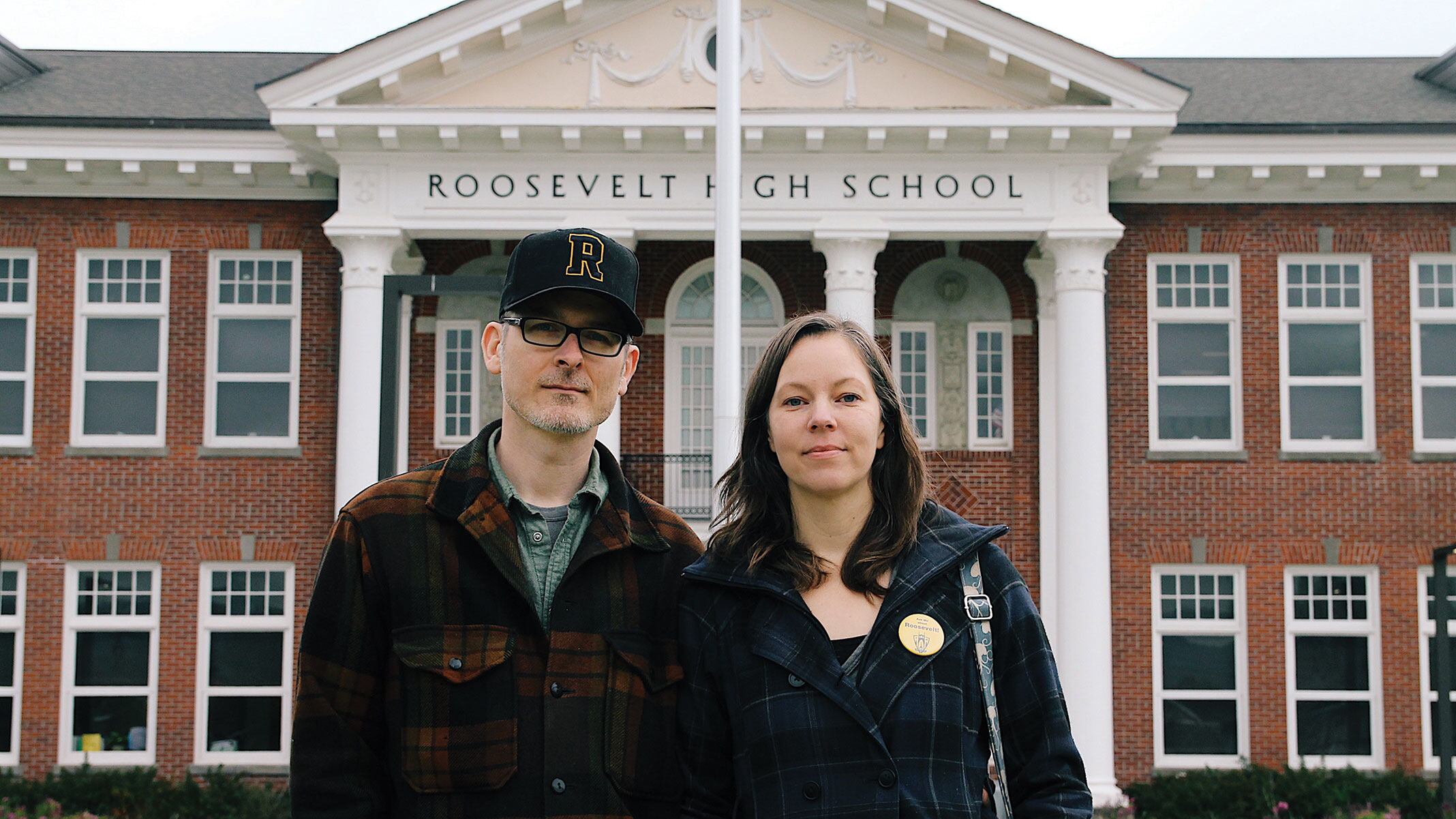Five years ago, parents at Roosevelt High School were so frustrated by the failure of Portland Public Schools to allocate the school its fair share of bond money, they filed a civil rights complaint.
The pressure from Roosevelt advocates seemed to work: In 2016, the Portland School Board decided to dedicate an extra chunk of bond money—$5 million of the $482 million bond—to tack on additional space to make the science lab equal to that of other high schools.
Nearly three years later, the shop still hasn't been built. The space where it was supposed to go remains asphalt. On top of that, WW has learned, PPS has sent the $5 million to other schools.
Roosevelt parents now say they were bilked by a district that treats students in deep North Portland differently from those in posher neighborhoods.
"Sacrificing Roosevelt is an easy one," says Joe Purkey, a Roosevelt parent and architect. "It's the easy call."
This May, Portlanders will vote in a School Board election. Among the questions that will factor into their vote: Does Portland Public Schools spend its multimillion-dollar construction bonds responsibly and fairly?
Board members have long said they want to create equity among schools in rich and poor neighborhoods. But the district squeezed the construction budget at Roosevelt, even as it redistributed money to other schools.
That money was part of a $482 million bond that voters passed in 2012 to renovate four schools: Franklin, Grant and Roosevelt high schools, and Faubion Middle School.
In 2017, the district pointed to the success of the 2012 bond when it asked voters to approve another bond—this one for $790 million. (Last week, The Oregonian reported the district is roughly $200 million short of the money it needs to complete the projects it promised voters in 2017.)
School Board member Julia Brim-Edwards says the board made a promise to Roosevelt in 2015 and now has an "explicit obligation and responsibility to complete that work."
Roosevelt High School, deep in North Portland, was supposed to be at the front of the line for money from the 2012 bond.
"Roosevelt was put first on the list of schools to be modernized," says Kevin Spellman, chairman of the district's Citizens Bond Accountability Committee. "There was a sense Roosevelt had been neglected."
But when school renovation plans were approved in 2014, some Roosevelt parents felt the plan for the school's "Makerspace," a fancy name for the workshop needed for science and technology programs, was paltry. Roosevelt's Makerspace was slated to be half the size of the proposed space at Franklin High.
In October 2014, Roosevelt advocate Donna Cohen and Purkey filed a civil rights complaint with the U.S. Department of Education against PPS. The complaint challenged a "discriminatory plan for the major remodel of a high school in a lower-income, minority-white neighborhood."
Coupled with an overhaul of the School Board at the ballot box and continued pressure from parents, the board succumbed. It announced in April 2016 it would allocate an additional $5 million from bond contingency funds to build more Roosevelt Makerspace.
Current board member Julie Esparza Brown, who also served on the board when the decision was made, says her colleagues pledged money they couldn't deliver. "We didn't have it."
In fact, nothing was built—and the district quietly redirected the money elsewhere.
In January 2017, the district's Office of School Modernization requested that the $5 million be put back in the general bond fund. The decision passed with little notice.
PPS spokesman Harry Esteve confirms the $5 million was spread across other 2012 bond projects, including renovations at Grant High School.
Parents felt Portland Public Schools had once again pushed one of the poorest high schools in the district to a back burner. Spellman disagrees: "Just because they don't get their way doesn't mean they're shorted."
Scarlett Lynsky, another Roosevelt parent, thinks the unbuilt STEM space will have long-term effects on the school's students, even if they are "resilient kids."
"I think they'll still continue to do great things," she says, "but they'll be doing it with one hand tied behind their backs."

